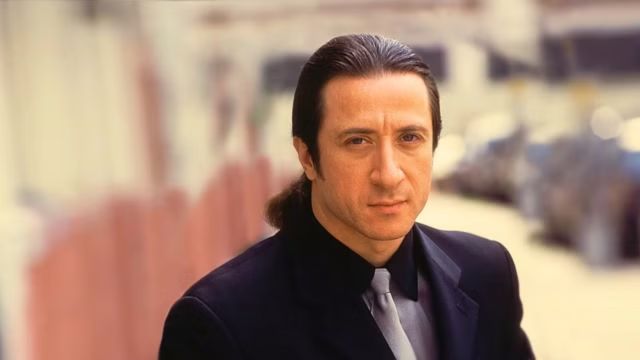Why Did Furio Leave The Sopranos? The Story Behind His Departure
The Sopranos, a classic television drama, has established a profound legacy with its captivating characters, sophisticated narratives, and dramatic developments. Among the memorable characters was Furio Giunta, whose enigmatic exit had admirers speculating about his destiny.
Although The Sopranos explored themes of family, loyalty, and betrayal, Furio’s narrative is particularly compelling. His sudden departure from the series became a central topic for curiosity and discourse, leaving fans with unresolved inquiries.
This article examines Furio’s position in the series, the reasons for his departure, and offers context regarding the universe of The Sopranos.
Who Is Furio in The Sopranos?
Furio Giunta, portrayed by Federico Castelluccio, was introduced in Season 2 as a Sicilian enforcer recruited by Tony Soprano to New Jersey. Furio was taciturn, although his deeds conveyed significant meaning.
His unwavering allegiance, formidable presence, and classic charm swiftly established him as a crucial member of Tony’s illicit enterprise.
Furio, who was born and reared in Italy, embodied traditional Mafia ideals that stood in stark contrast to the Americanized mobsters in Tony’s group. His proficiency in violence and capacity to manage sensitive “family matters” became him indispensable to Tony.
Nonetheless, Furio was not merely a singularly focused enforcer. Underneath his impassive exterior resided an individual contending with his own ethics and feelings, which finally influenced his departure considerably.
Furio’s difficulties in acclimating to American culture and the intricacies of the Soprano family relationships enriched his character, rendering him a fan favorite.
What Caused Furio’s Leave From the Sopranos?
Furio’s exit from the series was as enigmatic as the character he portrayed. The principal cause for his leaving is to his escalating affections for Carmela Soprano, Tony’s spouse. Gradually, Furio’s affection for Carmela evolved into a passionate obsession.
This unarticulated allure placed him in a hazardous predicament, as seeking a connection with the boss’s spouse is an inexcusable transgression in the Mafia realm.
In a critical moment, Furio’s internal conflict reached its climax. While at a casino, Furio had the chance to “accidentally” propel Tony into the chopper blades. Although ephemeral, the moment epitomized the profundity of Furio’s emotions for Carmela and his concurrent animosity toward Tony.
Ultimately, Furio’s ethical principles triumphed, preventing him from betraying Tony in that manner. This moment highlighted the underlying struggle between his familial obligations and his personal aspirations.
Recognizing that remaining in New Jersey would inevitably result in his demise—either by Tony’s actions or his own—Furio resolved to depart. He discreetly returned to Italy unexpectedly, leaving Tony and Carmela to ponder his abrupt absence.
His departure served as a stark reminder of the perils associated with transgressing boundaries in organized crime. The consequences of Furio’s departure rendered Carmela despondent and Tony wary, intensifying the series’ tension.
What is The Sopranos About?
The Sopranos, created by David Chase, is universally acknowledged as a pinnacle of television narrative artistry. The series, broadcast from 1999 to 2007, chronicles the lives of Tony Soprano, a New Jersey mob boss, as he confronts the complexities of managing a dual existence.
Tony is a merciless criminal who manages an extensive Mafia enterprise. Conversely, he is a husband and father striving to preserve a semblance of normalcy for his family. This contradiction constitutes the essence of the show’s narrative.
The Sopranos is distinguished by its profound exploration of character psychology, especially that of Tony. A significant portion of the series focuses on Tony’s therapy sessions with Dr. Jennifer Melfi, during which he addresses his fear, remorse, and internal struggles.
This distinctive method of storytelling offered audiences an authentic and unvarnished insight into the intricacies of a criminal’s psyche. The therapy sessions frequently functioned as a narrative mechanism to underscore Tony’s internal struggles and elucidate his behaviors.
The ensemble cast, with notable performances by James Gandolfini (Tony Soprano), Edie Falco (Carmela Soprano), and Michael Imperioli (Christopher Moltisanti), delivered a degree of authenticity and complexity that enthralled audiences.
The Sopranos addressed issues of loyalty, betrayal, family, and the American Dream, significantly influencing popular culture. Its capacity to amalgamate dark humor with profound drama produced a revolutionary television experience that remains unparalleled.
Furio’s narrative, however succinct within the overarching series, underscored the emotional ramifications of mob life. His challenges reflected those of other characters caught between personal aspirations and the obligations of their illicit existences.
Furio’s exit was a stark reminder that even the most devoted and capable enforcers are susceptible to the repercussions of illicit romance and ethical quandaries.
Want an understanding more information about the world of The Sopranos and other renowned television series? Visit our website for comprehensive articles, character evaluations, and exclusive inside information.
Look into the narratives that shaped a television generation and investigate the intriguing realms of your preferred shows! Do not overlook exclusive information and updates—visit immediately!





Comments are closed.